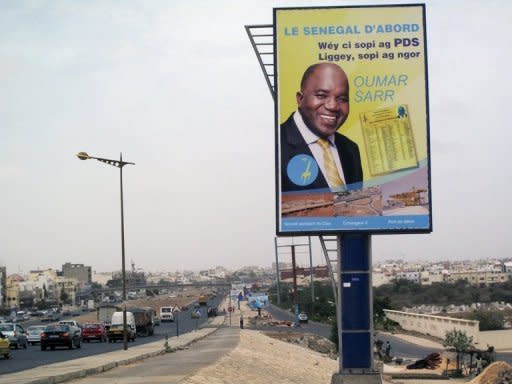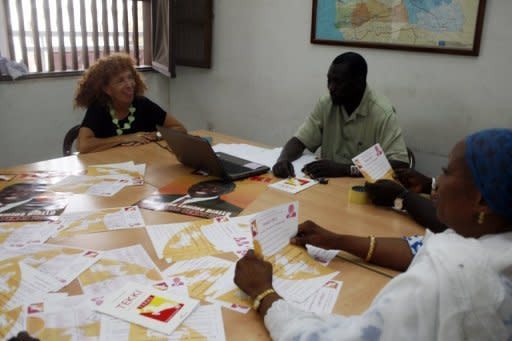President seeks majority as Senegal elects parliament
Senegal voted for a new parliament on Sunday with President Macky Sall seeking a majority to put his policies into action after ousting the veteran former leader Abdoulaye Wade in a March poll. Sall, who kicked off his presidency with a probe into possible wrong-doing by the previous regime, needs to end the current dominance of parliament by members of Wade's party. Voters were slow heading to the polls, with observers saying the election could be marked by low turnout. "I have noticed a lot less people than during the presidential election, it is because people don't understand what is at stake," said shopkeeper Cheikh Thiaw, 35, a supporter of the president's coalition. "To help Macky Sall to govern without problem, he must be given a majority." Voter Mor Talla added: "There are only a few people (voting) at the moment, maybe it is because there are too many parties and coalitions taking part." Parties and coalitions have submitted 24 lists for the election which will renew the 150 seats in the assembly for five years. More than 7,000 candidates are in the running. Wade's party dominates the house after the last legislative elections in 2007 were boycotted by the then-opposition but he lost the March presidential vote after controversially insisting he could run again. Sunday's poll is set to put more women than ever in parliament in the west African state thanks to a 2010 law which now requires an equal gender balance on party lists. Women's organisations have praised the move as modern, while others in the majority Muslim, male-dominated nation have rejected it as unfair and undemocratic. Only 33 of the outgoing lawmakers are women in a country whose population of 12 million is 52 percent female. The United Nations Development Programme in 2010 warned that women were falling behind as fewer and fewer were being elected to parliaments in Africa. The African Union target is 50 percent. Rwanda is leading the continent in women's representation, with 56 percent female lawmakers, followed by South Africa at 46 percent. Some 5.3 million people registered to vote in the election after a three-week campaign which went off without major incident, compared to the presidential election which was tarnished by deadly riots during campaigning. The violence was sparked by 86-year-old Wade's insistence on seeking a third term in office. However, he was trounced at the ballot box as voters handed the much-younger Sall, 50, a resounding victory. But now Sall needs seats in parliament to carry out his programmes. "A president without a majority cannot govern and we would find ourselves at an impasse," Sall said last month, calling for voters to back his "Benno bokk Yaakkar" (meaning United for the same hope in the Wolof language) coalition. Of the 150 seats at stake, 90 will be elected from regional lists by majority vote and 60 from national lists by proportional representation. Among Sall's main competitors are Wade's Senegalese Democratic Party (PDS), and a coalition formed by a group of PDS dissidents called "Bokk gis gis" (Common Vision). The opposition has called for Sall to be "forced into cohabitation" in parliament. "If the president does not have a parliamentary majority, the opposition will name a prime minister and form a government. For him to govern comfortably, he needs this majority," said lawyer Ismaila Madior Fall this week. Sall kicked off his presidency with an audit into the management of the former regime which has seen many former top officials hauled in for questioning over possible ill-gotten gains.




